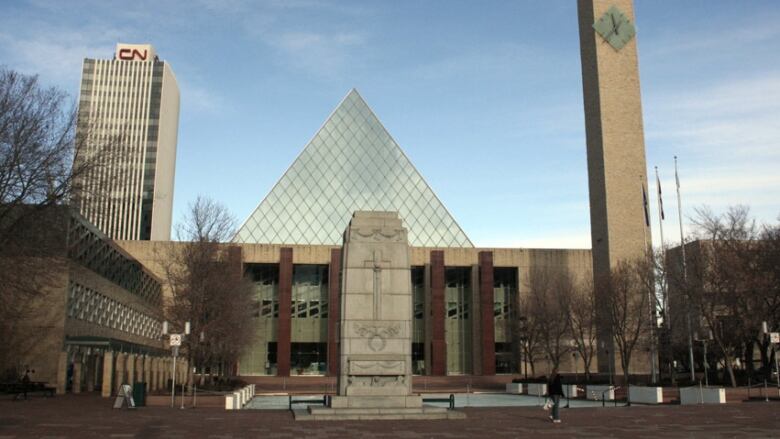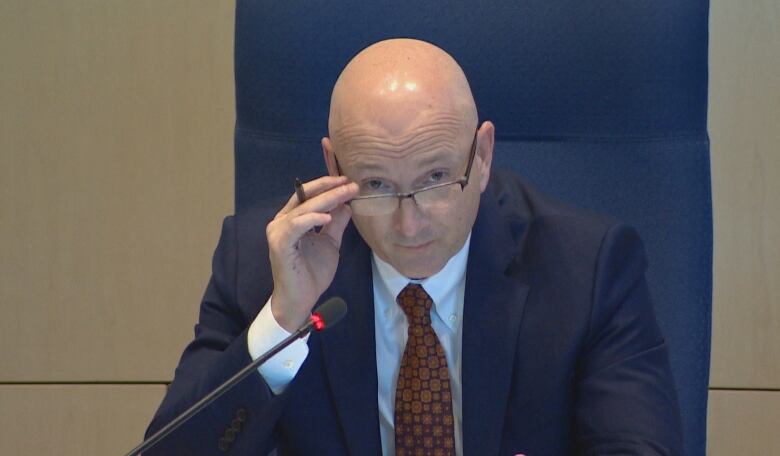Tax or police? Edmonton councillors weigh options for cannabis control
Province's $1 million cost-sharing offer leaves city in the lurch, councillors say

A tight budget at Edmonton city hall got tighter Monday when council learned the city will get $1 million from the Alberta government to cover the costs of legalizing cannabis.
That's about $7 million less than what the city estimates it needs in 2019 for things likebylaw and police officers, costs of rezoning city lots to allow for cannabis shops, public education and communications campaigns.
On Tuesday, several councillors admitted Edmontonians may face another property tax hike for next year.
Coun. Michael Walters said the city will have to find the money somewhere.
"This certainly doesn't make keeping the tax rate lower easier, I can say that with great certainty."
I wonder if they have a bad case of the budget munchies- Coun. Scott McKeen
Coun. Bev Esslinger said while everyone has been pushing for a zero tax increase this year, given the new information from the province, she doesn't know if that's realistic.
"We don't want to put it on the property taxpayer but we really are limited on where we can get dollars from."
'The inequities of paltry funding'
The province announced Monday it will offer a collective $11.2 million for about 52 towns and cities in Alberta in its Municipal Transition Cannabis Program.
Mayors and municipal leaders around the province reacted with frustration and disappointment.
Coun. Scott McKeen even described the move as insulting.
"One wonders if they haven't been getting a bit high off the anticipatory budget implications of cannabis," he said. "They're getting the money and we're getting the work."
He said municipal governments are left with enforcing new laws, policing, public safety and security, while the province benefits from a revenue-sharing deal with the federal government.
"We're speaking on behalf of almost a million Edmontonians when we talk about the inequities of paltry funding to Edmonton," McKeen said. "I wonder if they have a bad case of the budget munchies."
Walters also said he was perplexed at the province's move, given the city planned ahead for cannabis and presented its case months ago.
"We've asked repeatedly, we've communicated with evidence repeatedly," he said.

Councillors noted the Alberta government will receive 75 per cent of tax revenues from sales of legal marijuana. Ottawa has said the provinces are responsible for helping municipalities with the costs of legalizing cannabis.
"This needs to flow through to you through the provinces, and in our case it isn't," Walters said, paraphrasingthe federal government's message this year. "Well it's trickling through, at best."
McKeen has another idea to make up for the shortfall don't pay for any more police or bylaw officers.
"We could just not fund that because we wouldn't have the money to do it," he said. "If we need those police officers and we need to hire more bylaw officers, then we're going to have to do it on the backs of Edmonton property taxpayers."
Mayor Don Iveson pondered the same solutions Monday after he heard the provincial announcement.
"The options are that we hire less police officers and less bylaw officers," he said. "Or we raise property taxes, and I've said that I don't want to raise property taxes to deal with the cost of legalization here."
Edmonton police'sbudget hasn't been finalized yet, so EPS cannot say how much will be needed for cannabis enforcement, Cheryl Voordenhout, police spokesperson, told CBCNews.

This year, the city approved $1.4 million in one-time funding for policetraining and equipment related to monitoring cannabis use.
Coun. Mike Nickel, known for being fiscally conservative, wasn't ready to commit to a tax hike. Council can look at cutting other projects or taking from the financial stabilization reserve, he said.
- Edmonton property taxes set to go up 3.5 per cent in 2018
- Own a typical home in Edmonton? You'll pay $62 more this year
But Nickelholds out hope the province will come through with a revenue-sharing scenario for the municipalities.
"They need to buck up," he said. "I mean if you lookat the other jurisdictions with cannabis, every time they've legalized it they've grossly underestimated their revenues.
"I think there's an upswing here for the money to come back to the city it has to."
Residential taxes went up last year by nearly two per cent for the owner of a typical home assessed at $399,500.
Business groups have decried the consistent increases in taxes over the years and have lobbied council strongly this year to stop them.
Council starts dissecting the operating budget the first week of November.
The city may be surprised at what they learn from legalization before having to make those tough decisions, said Esslinger.
"Maybe by the time we get to budget, we'll have a little bit of experience and say, 'You know, we don't need it.' "












_(720p).jpg)


 OFFICIAL HD MUSIC VIDEO.jpg)
.jpg)



























































































